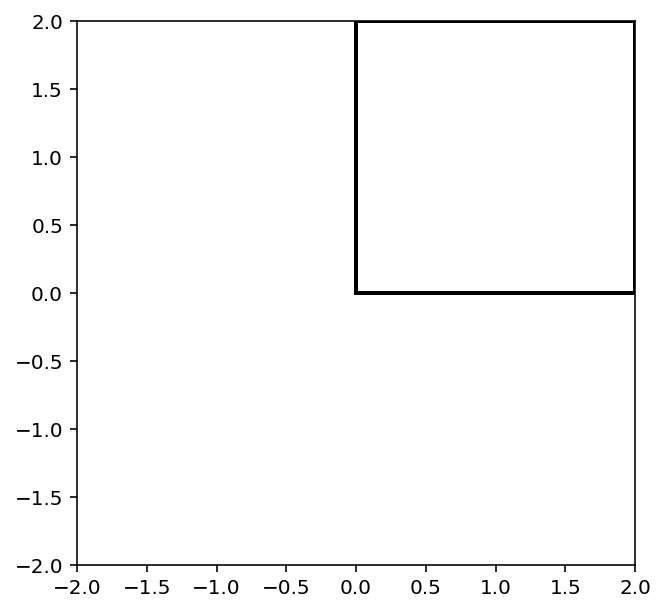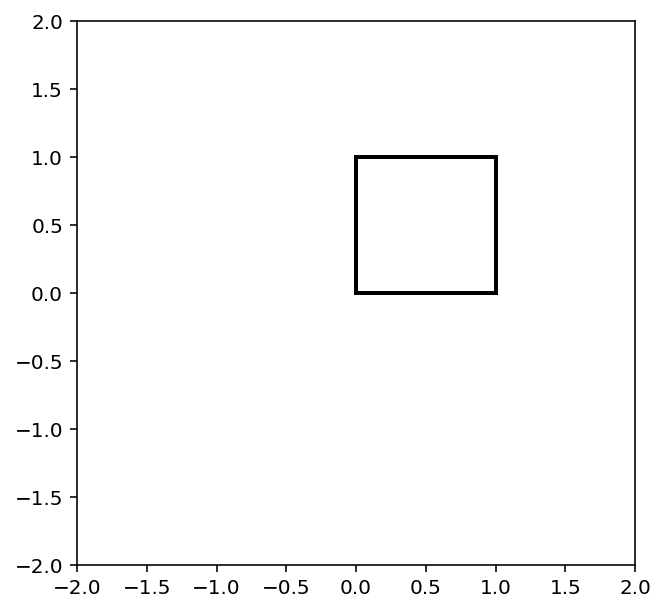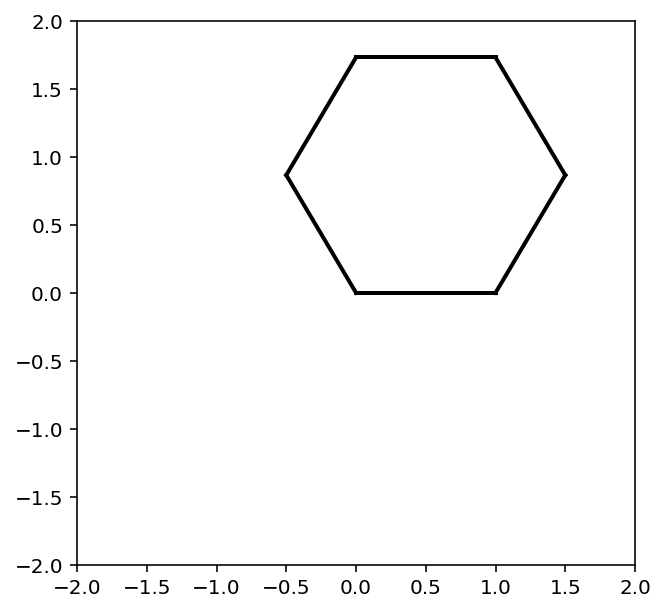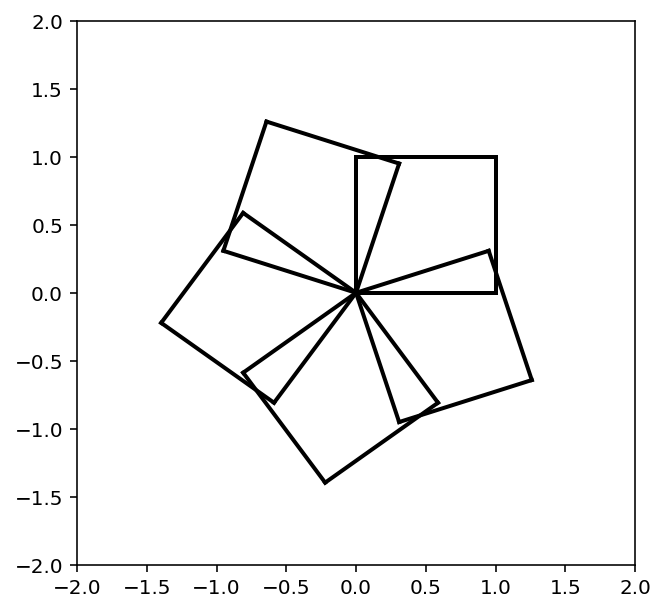Practice 2¶
Questions 1 - 3¶
import matplotlib.pyplot as plt
import numpy as np
# function definitions
# 1.
def draw_square():
draw_forward(1)
rotate_left(90)
draw_forward(1)
rotate_left(90)
draw_forward(1)
rotate_left(90)
draw_forward(1)
# 2.
def draw_polygon(n, dis):
for i in range(n):
draw_forward(dis)
rotate_left(360/n)
# 3.
def draw_rotated_polygons(n, m):
for i in range(m):
draw_polygon(n, 1)
rotate_left(360/m)
def start():
state[0] = 0
state[1] = 0
state[2] = 0
plt.figure(figsize=(5,5))
plt.xlim(-2, 2)
plt.ylim(-2, 2)
def draw_forward(dis):
x = state[0]
y = state[1]
angle = state[2]
state[0] = x + dis * np.cos(angle)
state[1] = y + dis * np.sin(angle)
plt.plot([x, state[0]], [y, state[1]], color="black", linewidth=2)
def rotate_left(theta):
state[2] = state[2] + theta * np.pi / 180
state = [0, 0, 0]
# Turtle instructions
# 1. NB mistake in question - should be draw_forward()
start()
draw_forward(2)
rotate_left(90)
draw_forward(2)
rotate_left(90)
draw_forward(2)
rotate_left(90)
draw_forward(2)
# NB I've brought the call to start() outside the function
# so that we can later chain these functions together
start()
draw_square()
# 2.
start()
draw_polygon(6, 1)
# 3.
start()
draw_rotated_polygons(4, 5)




Question 4¶
Copy the three function definitions get_number_of_day, get_day_of_week and print_day_of_week_from_number_of_year from the notes. Correct the code so that it prints the day of the week correctly.
# It turns out there were *two* mistakes in the function!
def get_number_of_day(n):
d = (n - 1) % 7 # subract 1 from n
return d # changed from n to d
def get_day_of_week(n):
week_days = ["Monday", "Tuesday", "Wednesday", "Thursday", "Friday", "Saturday", "Sunday"]
return week_days[n]
def get_day_of_week_from_number_of_year(n):
d = get_number_of_day(n)
s = get_day_of_week(d)
return s
# should print 0
get_number_of_day(1)
# Should print "Monday"
day = get_day_of_week_from_number_of_year(1)
print(day)
Monday
Question 5¶
#Two nested loops
#Remember range(a, b) runs from a to b-1
for i in range(1, 11):
for j in range(1, 11):
print(i*j, end=" ") # use the end argument to print a space rather than a new line
print() # print a new line after each iteration of the inner loop
# NB to print it nicely with everything lined up requires a little more work.
# we could do this with 'if' statements to print the correct number of spaces
# or use a more advanced techniques such as string.format (which we haven't covered yet)
1 2 3 4 5 6 7 8 9 10
2 4 6 8 10 12 14 16 18 20
3 6 9 12 15 18 21 24 27 30
4 8 12 16 20 24 28 32 36 40
5 10 15 20 25 30 35 40 45 50
6 12 18 24 30 36 42 48 54 60
7 14 21 28 35 42 49 56 63 70
8 16 24 32 40 48 56 64 72 80
9 18 27 36 45 54 63 72 81 90
10 20 30 40 50 60 70 80 90 100
